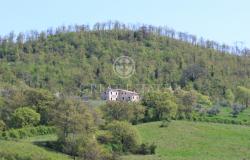 An elderly Tuscan priest is under investigation for child sex abuse in a case which has led to renewed criticism of the Church's handling of clergy paedophilia claims.
An elderly Tuscan priest is under investigation for child sex abuse in a case which has led to renewed criticism of the Church's handling of clergy paedophilia claims.
Father Lelio Cantini, 84, was placed under investigation on Tuesday, suspected of sexually abusing at least 20 girls as young as 10 during his 30 years as priest of the parish of Regina della Pace on the outskirts of Florence.
The victims first reported the priest to the Church authorities three years ago, saying the abuse began in 1975.
The Church responded by transferring Cantini to another parish in September 2005 "for health reasons".
The victims subsequently protested to Pope Benedict XVI, writing to him twice last year to demand tougher action.
Cantini was then transferred out of the diocese and, at the end of an ecclesiastical trial last January, was banned from holding a Church post for five years or celebrating the sacraments in public.
After the accusations were made public this week by the daily La Repubblica, Cantini left his new lodgings in the Tuscan coastal area of Versilia and went into hiding.
Prosecutors leading the case stressed that they had opened their inquiry on the basis of the La Repubblica report but said they would be questioning the women involved.
According to the daily, the priest coerced his victims into having sex with him when they were minors and continued to have sex with them regularly for years.
He allegedly told them that it was a form of "total union with God", making each one believe they had been "specially chosen" and threatening them with "divine punishment" if they told anyone.
According to La Repubblica, Cantini told one of the girls, aged 10 at the time, to "think of the Madonna, who bore Jesus when she was only 12".
Cantini was allegedly helped by a long-time female aide and self-styled clairvoyant who is also under investigation.
The 'clairvoyant' claimed to have visions of Jesus in which the names of the "elect" girls destined to sleep with the priest were revealed to her, according to the victims.
The victims remained silent for years until chance reunions led to them sharing their stories. They decided to act in January 2004, reporting Cantini to the Florence Curia.
They presented written testimony and met with then Florence archbishop Silvano Piovanelli and his successor, Archbishop Ennio Antonelli.
Dissatisfied with the decision to transfer Cantini to another parish, the women wrote to the pope.
In their letter to Benedict in March 2006, the women said they did not want to have to "account for a guilty silence in time to come".
In a second letter dated October 2006, the women complained that the Church had not "firmly distanced itself" from Cantini and his aide or taken "authoritative and credible reparatory action".
Cardinal Camillo Ruini, who was then head of the Italian bishops' conference, replied to the second letter saying that Cantini had left the diocese and that he hoped this would "inspire tranquility in the faithful involved in the case".
Further pressure led to January's disciplinary measures but the victims told La Repubblica they were "stunned and pained" by the failure to act more decisively.
PRIESTS PROTEST AS WELL.
The case has also sparked anger among local priests, who backed the women's decision to write to the pope.
Father Renzo Ventisette, a prominent city parish priest, said that he had asked Archbishop Antonelli several times to tackle the case of Cantini "openly and clearly".
"Even now, the action that has finally been taken is insufficient," he told La Repubblica.
Father Enzo Mazzi, another Florence parish priest, told ANSA that "the bishop should have been open about the problem so that we could have found a solution together... there is a lack of dialogue within the Church. In secular terms, one could say that democracy is lacking".
Father Alessandro Santoro delle Piagge told La Repubblica: "The archbishop has complained that we are too lax on family and sexual morals because we give communion to divorced couples and homosexuals. Finding out that nobody up until now has had the will or honesty to deal with the terrible things that have been going on for a long time in a neighbouring parish has angered a lot of people".
Other critics said the fault lay with the Church's own guidelines for dealing with paedophile priests.
Drawn up by the current pope Joseph Ratzinger when he was head of the Congregation for the Doctrine of the Faith, they were sent to every Catholic bishop in May 2001.
They said that suspected cases should be immediately reported to Rome and asserted the Church's right to hold all inquiries and trials in secret and keep the evidence confidential for up to 10 years after the victims turn 18.
"Cases of this kind are subject to pontifical secrecy," the document, written in Latin in the form of a letter, said.
The Vatican denies that secret procedures are designed to hush up cases or prevent victims from going to the police, saying that the document deals with Church law.
The pope was afterwards named as a defendant in a civil lawsuit by three men in Texas who accused a Colombian-born seminarian of sexual abuse in the mid-1990s.
The men's lawyer argued that the 2001 document amounted to a "conspiracy" to hide such crimes and help the perpetrators escape prosecution. The US State Department told the court in 2005 to dismiss the case against Benedict because he held immunity as head of state of the Holy See.
But Ratzinger's 2001 letter was seen by many as evidence of a tougher stance by the Holy See following a series of damaging and costly cases involving paedophile priests.
The document stressed that Rome must be informed of even the "slightest hint" of paedophilia by a priest and an investigation launched.
"With this letter, we hope that not only will these serious crimes be avoided but, above all, that the holiness of the clergy and the faithful be protected," it said.









